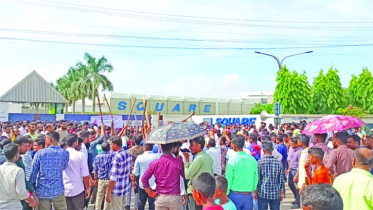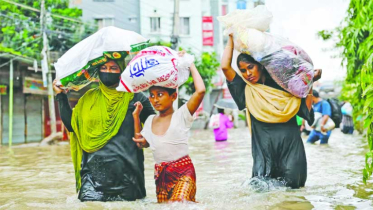The recent floods have wrought devastation across vast regions of Bangladesh, particularly affecting the agro-based economies of Habiganj, Moulvibazar, Brahmanbaria, and Chattogram. With 296,852 hectares of crops submerged and significant losses in fisheries and livestock—estimated at USD 122 million and USD 34 million respectively—the urgency for targeted support for these communities cannot be overstated.
The sheer scale of the damage is staggering. Floodwaters have not only wiped out entire fields of crops but have also disrupted the delicate balance of local ecosystems and economies. The impact extends beyond immediate losses; it threatens long-term food security and the livelihoods of thousands of families. The flooding has compounded the struggles of farmers who were already grappling with the challenges of modern agricultural demands and climate change. To address this crisis effectively, we must implement special incentive packages tailored specifically to the needs of these flood-affected farmers. These packages should encompass several critical areas:
Immediate financial aid and low-interest loans can help farmers recover from the initial shock and begin replanting efforts. This should include grants for those who have lost their entire crop yield and soft loans for purchasing seeds, fertilizers, and other necessary inputs.
For the aquaculture sector, support should be directed towards restocking ponds, repairing infrastructure, and providing feed and veterinary care. Similarly, for livestock, aid should include the provision of feed, veterinary services, and support for rebuilding barns and shelters.
Farmers need guidance on best practices for recovery and rebuilding. Extension services can offer critical advice on soil restoration, pest management, and crop selection suited to the post-flood conditions.
Expanding access to crop and livestock insurance will be crucial in mitigating the financial risks associated with future disasters. A robust insurance scheme can provide a safety net and encourage resilience among farmers. Rebuilding and improving agricultural infrastructure such as irrigation systems, roads, and market facilities will be essential to ensure that farmers can access markets and resources efficiently. While immediate relief is critical, it is also important to consider long-term sustainability. Investing in flood-resistant agricultural practices, climate-smart technologies, and improved infrastructure will not only aid in recovery but also bolster resilience against future disasters. By integrating these elements into recovery plans, we can help create a more robust and adaptive agricultural sector. The current crisis presents an opportunity to demonstrate solidarity and commitment to the agricultural community. Government agencies, NGOs, and the private sector must collaborate to deliver a comprehensive response that addresses both immediate needs and long-term goals. By providing special incentive packages and targeted support, we can not only aid recovery but also empower these communities to thrive in the face of adversity.

.png)



